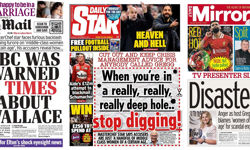In fact, there was very much a new media feel to the day, with the other main talking point being Facebook and its recent eclipse of Google – it kind of makes you wonder what the AOP will be talking about at their annual bash; box-outs and covermounts?
“In my 25 years of publishing, I can’t recall a device that has whipped up so much enthusiasm before”, said new PPA CEO Barry McIlheney about the iPad. There were two or three of the devices floating about, and whenever one was sighted, there was an audible buzz in the room!
Juan Señor, a partner in Innovation Media Consulting Group, said that it “recaptured the experience of reading”. He hailed it as offering a second life to magazine publishers, a device on which a defined pagination and an identifiable beginning, middle and end seemed almost normal. A bit like on paper.
But, Señor continued, it comes with a “velvet shackle”. Beware “biting the Apple if you haven’t the strength to negotiate with them.”
For the Guardian’s Tim Brooks, all those arguments about the superior reading experience of paper were fast disappearing, but he too warned about Apple: “Gaining their attention is enormously challenging.”
In fact, a near-demonization of Apple was emerging. John Zieser of US publisher Meredith, had a particularly large bucket of cold water for the iPad enthusiasts. Not only was the iPad a first generation project, but large numbers of tablet devices (most of which will be able to handle Flash) will be on the market by year-end. In 18 months’ time, Zieser continued, the iPad will not have the same market share as it has now.
Of course, Zieser and Meredith are part of the US consortium, Next Issue Media, whose aim is to develop open standards for a new digital storefront, something which puts them on a collision course with Apple, because, as Tim Brooks says, they are not about to “cede control of the apps market”.
For many speakers, now was a critical time for publishers in their negotiations with Apple, and other tablet providers. There are two areas of contention. One, naturally, is pricing and the proportion of the sale price retained by Apple. The other is access to customer data. You might think that UK publishers, with their customer-blind newstrade distribution model, would be quite relaxed about not knowing who their customers are – after all, they never knew before. But, the playing field has changed, and in the digital space, UK publishers do expect to know. Besides, the traditional subs-model of US publishers, who will be the ones leading the negotiations, means that they have always known who the majority of their customers were and they don’t take kindly to being kept in the dark now.
The success or otherwise of this jockeying for position could have a profound bearing on the levels of publisher profitability, as well as on the nature of marketing communications, for years to come. Let battle begin!
The big loser in all of this? The Kindle, apparently. According to one speaker, and I forget who it was, “the Kindle is stuffed; a single-use device at that price point has no future.” Perhaps; although when it comes to standing up to Apple, Amazon might just be one of the few big enough to do it.










